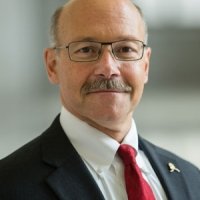Maritime Security in the Polar Regions: Legal Perspectives from the United States and China
Large-scale environmental changes have precipitated changing geopolitical and maritime conditions at both poles. These changes are expanding shipping and resource development activities in the Arctic. Similar changes are also affecting Antarctica and may complicate governance of scientific research, tourism and fisheries management in that region. Both China, which released in January 2018 its first formal Arctic policy, and the United States have interests in the responsible development of the Arctic region and are key players in Antarctica as well.
Hong Nong, Mark Nevitt, and Mark Rosen will present recently published research and discuss the evolving Arctic and Antarctic legal regimes. David Balton and Lindsay Rodman will provide remarks.
Speakers


Former Executive Director, Leadership Council for Women in National Security
Introduction

US Ambassador-at-Large for Arctic Affairs; Former Chair, US Arctic Research Commission
Moderator

Author, Threat Multiplier: Climate, Military Leadership & the Fight for Global Security.
Hosted By

Polar Institute
Since its inception in 2017, the Polar Institute has become a premier forum for discussion and policy analysis of Arctic and Antarctic issues, and is known in Washington, DC and elsewhere as the Arctic Public Square. The Institute holistically studies the central policy issues facing these regions—with an emphasis on Arctic governance, climate change, economic development, scientific research, security, and Indigenous communities—and communicates trusted analysis to policymakers and other stakeholders. Read more


Environmental Change and Security Program
The Environmental Change and Security Program (ECSP) explores the connections between environmental change, health, and population dynamics and their links to conflict, human insecurity, and foreign policy. Read more


Kissinger Institute on China and the United States
The Kissinger Institute works to ensure that China policy serves American long-term interests and is founded in understanding of historical and cultural factors in bilateral relations and in accurate assessment of the aspirations of China’s government and people. Read more
